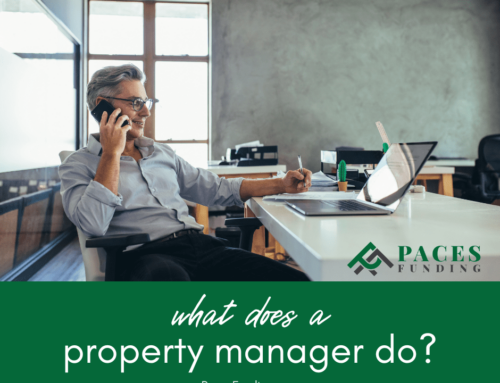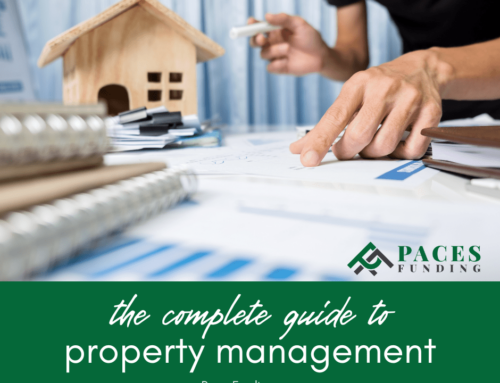
Top Tips for Finding the Best Fix-and-Flip Opportunities in the Southeast
Flipping properties in the Southeast can be a lucrative investment strategy. This guide provides essential tips for finding the best fix-and-flip opportunities to help you maximize your returns.
Top Tips for Finding the Best Fix-and-Flip Opportunities in the Southeast
Flipping properties can yield high returns, especially in the dynamic markets of the Southeast. This guide explains how to identify and secure the best fix-and-flip opportunities. This guide explains the following:
- Understanding the Southeast real estate market
- Identifying the best locations for fix-and-flip properties
- Evaluating properties for fix-and-flip potential
- Financing your fix-and-flip project
- Managing renovations effectively
- Marketing and selling your flipped property
Here’s a closer look at each.
Understanding The Southeast Real Estate Market
The Southeast real estate market is known for its diversity and growth potential. States like Georgia, Florida, North Carolina, South Carolina, Tennessee, Texas, and Virginia offer a mix of urban, suburban, and rural areas, each with unique investment opportunities. Understanding market trends, including population growth, employment rates, and local economic conditions, is crucial. Areas with strong job markets, growing populations, and infrastructure development tend to offer the best fix-and-flip opportunities.
Related: Hard money loan advice
Identifying The Best Locations For Fix-And-Flip Properties
Location is one of the most important factors in real estate investing. Here are some tips for identifying the best locations for fix-and-flip properties in the Southeast:
Urban Areas: Look for properties in growing cities with strong demand for housing. Cities like Atlanta, Charlotte, and Nashville have vibrant real estate markets with high demand for renovated homes.
Suburban Growth Areas: Suburbs near major cities often offer lower property prices and high demand for family homes. Look for areas with good schools, amenities, and transportation links.
Emerging Markets: Identify emerging markets with potential for future growth. These areas might be undergoing revitalization or benefiting from new infrastructure projects.
Local Market Analysis: Conduct a thorough analysis of local market conditions, including property values, rental rates, and vacancy rates. Look for neighborhoods with rising property values and low vacancy rates.
Evaluating Properties For Fix-And-Flip Potential
Not all properties are suitable for fixing and flipping. Here are some factors to consider when evaluating properties:
Property Condition: Look for properties that need cosmetic updates rather than major structural repairs. Cosmetic renovations are usually quicker and less expensive, offering a higher return on investment.
Purchase Price: Ensure the purchase price allows room for renovation costs and profit. Use the 70% rule as a guideline: aim to buy a property at 70% of its after-repair value (ARV) minus renovation costs.
After-Repair Value (ARV): Estimate the property’s ARV based on comparable sales in the area. ARV is the estimated value of the property after all renovations are complete.
Inspection: Conduct a thorough inspection to identify any potential issues that could impact the renovation budget or timeline.
Related: Real estate market analysis for investors
Financing Your Fix-And-Flip Project
Securing financing is a critical step in any fix-and-flip project. Here are some financing options to consider:
Hard Money Loans: Hard money loans are ideal for fix-and-flip projects because they offer quick approval and funding. These loans are based on the property’s value rather than the borrower’s creditworthiness, making them accessible to many investors.
Private Lenders: Private lenders can provide flexible financing terms and quick access to funds. These lenders are often more willing to finance properties that need significant repairs.
Traditional Loans: While traditional loans typically have lower interest rates, they can be harder to obtain and take longer to process. They may be suitable for properties that don’t require extensive renovations.
Personal Funds: Using personal funds can save on interest costs and provide greater control over the project. However, it can also tie up capital that could be used for other investments.
Managing Renovations Effectively
Effective management of the renovation process is crucial for maximizing ROI. Here are some tips for managing renovations:
Plan Thoroughly: Develop a detailed renovation plan and budget before starting work. Include all costs, such as materials, labor, permits, and contingencies.
Hire Experienced Contractors: Work with reliable and experienced contractors to ensure quality workmanship and timely completion. Get multiple quotes, check references, and establish clear expectations.
Focus on High-Impact Upgrades: Prioritize renovations that offer the highest return on investment, such as kitchen and bathroom remodels, new flooring, and improved curb appeal.
Monitor Progress: Regularly monitor the progress of the renovation to stay on schedule and within budget. Address any issues promptly to avoid delays and cost overruns.
Related: Understanding homebuyers when you sell a flip
Marketing And Selling Your Flipped Property
Once the renovations are complete, it’s time to market and sell your property. Here are some tips for maximizing your sales price:
Set The Right Price: Price the property competitively based on a thorough market analysis. Overpricing can lead to extended time on the market, while underpricing can leave money on the table.
Professional Staging: Staging the property can make it more appealing to buyers. Consider hiring a professional stager or using furniture and decor to showcase the property’s best features.
High-Quality Marketing Materials: Use professional photos, virtual tours, and compelling property descriptions to attract potential buyers. List the property on multiple platforms, including MLS, real estate websites, and social media.
Flexible Showings: Accommodate potential buyers’ schedules to maximize the number of showings. The more people see the property, the higher the chances of receiving competitive offers.
FAQ About Fix-And-Flip Opportunities In The Southeast
Check out these commonly asked questions about finding fix-and-flip opportunities in the Southeast. If you don’t see your question here, please call our office and we’ll find you the answers you need.
What Are The Best Locations For Fix-And-Flip Properties In The Southeast?
The best locations include growing urban areas like Atlanta, Charlotte, and Nashville, suburban growth areas near major cities, and emerging markets with potential for future growth.
How Do I Evaluate A Property For Fix-And-Flip Potential?
Evaluate properties based on condition, purchase price, after-repair value (ARV), and a thorough inspection to identify potential issues. Aim for properties needing cosmetic updates rather than major structural repairs.
What Financing Options Are Available For Fix-And-Flip Projects?
Financing options include hard money loans, private lenders, traditional loans, and personal funds. Hard money loans are ideal for quick approval and funding, especially for properties needing significant repairs.
How Can I Effectively Manage Renovations?
Develop a detailed renovation plan and budget, hire experienced contractors, focus on high-impact upgrades, and monitor progress regularly to stay on schedule and within budget.
What Are The Best Strategies For Selling A Flipped Property?
Set the right price based on market analysis, stage the property professionally, use high-quality marketing materials, and accommodate flexible showings to attract potential buyers and maximize sales price.
Finding and flipping properties in the Southeast can be a highly profitable investment strategy. By understanding the market, choosing the right properties, securing financing, and managing renovations effectively, you can maximize your ROI and build a successful real estate investment portfolio.
Do You Need a Hard Money Loan?
Paces Funding is the top hard money lender in Georgia, North Carolina, South Carolina and Tennessee. Apply for a hard money loan here or click through our site to find out how we can help you now!














